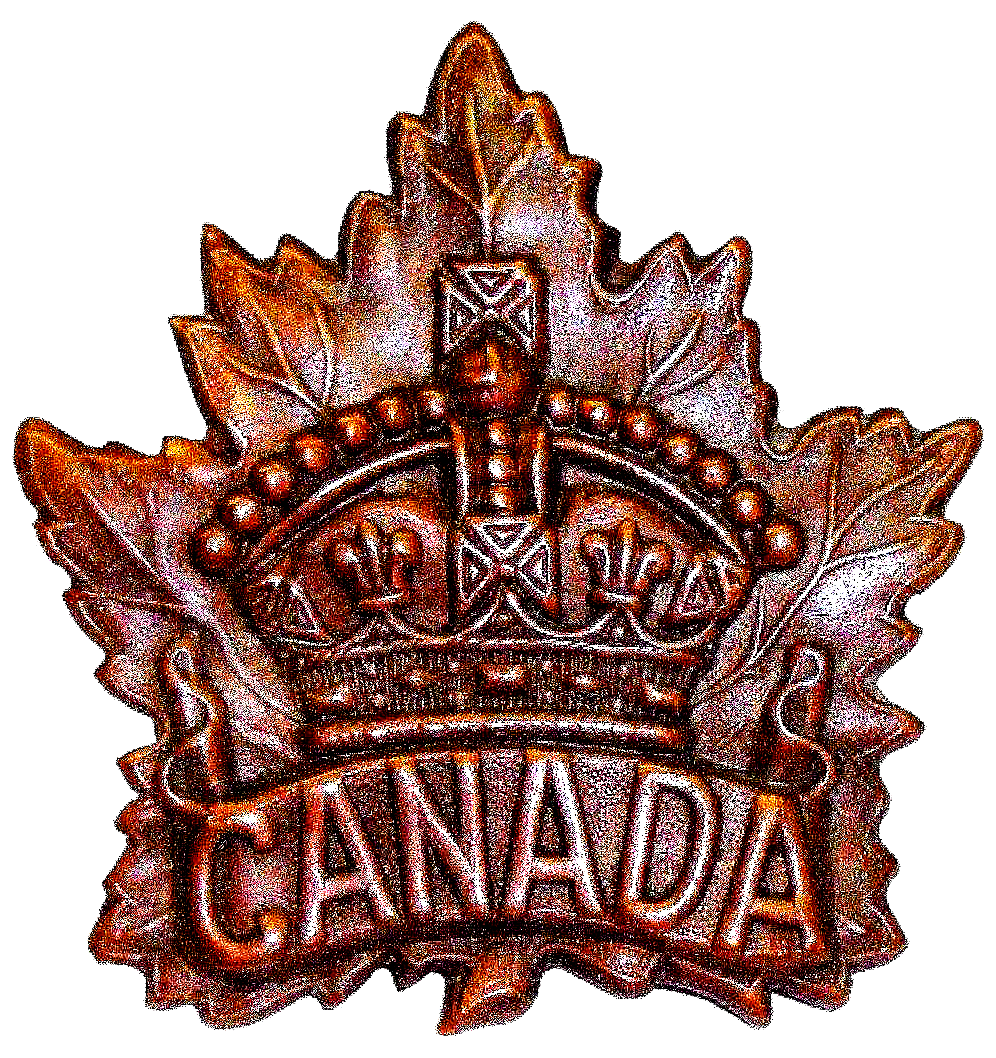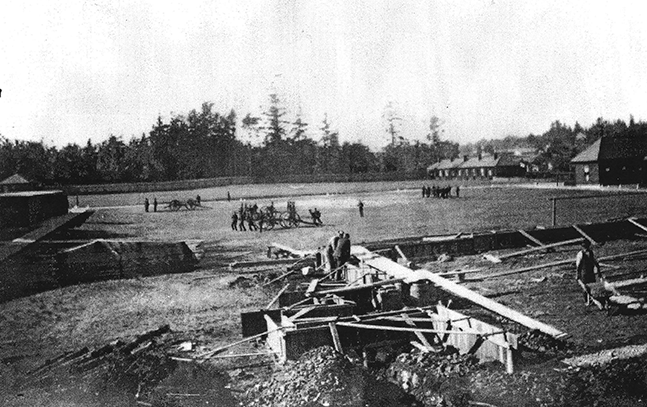 |
 OPCMHVisitor No.: |
HISTORY OF WORK POINT BARRACKSby Jack BatesPART 3 — 1894 to 19061898Daily Colonist The quarterly firing of the guns mounted at Rodd Hill and Macaulay forts took place yesterday and was witnessed by the officers of the 1st battalion. Two rounds from each gun were fired, although the target was not seriously damaged many of the shots passed through it. Colonist DEATH OF COL. HOUGHTON One of British Columbia’s First Representatives in the House of Commons The death occurred at St. Joseph’s hospital yesterday morning of Lieut. Col. Charles Frederick Houghton, late deputy adjutant general of militia at Montreal. The deceased, who was known and highly respected from one end of Canada to the other, had spent the best part of his life in the service of Her Majesty. He was born in the country of Tipperary just sixty years ago and before his twentieth birthday was appointed to a commission in the 57th regiment. Upon his promotion to a captaincy in H.M. 20th regiment, he was sent to Malta but remained a very short time, purchasing his discharge in 1863 to come to British Columbia and engage in farming in the Okanagan valley, being among the first to recognize the agricultural possibilities of that section of the province. In 1871 Col. Houghton was elected a member of the House of Commons, being one of the first British Columbia members to go to Ottawa after confederation. He occupied the seat for two sessions, then being appointed D.A.G. for the British Columbia district. A few years later he was transferred to Winnipeg where he was commandant – at the time of – the second Riel rebellion, going to the front with the 9th battalion. Subsequently he was transferred to Montreal where he continued as D.A.G., until his retirement upon reaching the age limit. About five weeks ago Col. Houghton came to Victoria in ill health and immediately went to St. Joseph’s hospital, where he was treated for cancer. He was married in 1879 to Marion, daughter of the late Robert Dunsmuir, who died in 1892. The funeral will take place at 10:30 tomorrow from the residence of Mr. Charles Vernon, Humboldt street, and at Christ Church cathedral at 11. San Francisco Call "Tearing Down a City To Make Room ____________________ The building of a residence for Lt. Col. James Peters at 423 Smith Street, later named Peters Street in 1926, started with the following communications between Peters and Ottawa, regarding the additional Imperial troops moving in to Work Point. Barry Gough notes Work Point improvements Barrack grounds to be extended two blocks for additional accommodation. Provision being made for the greatly increased permanent Garrison. DAILY COLONIST GENERAL LORD SEYMOUR Commander of the British Troops in Canada Arrived Last Evening Lieutenant-General Lord William Seymour, commanding the British forces in Canada, arrived last evening from Halifax, and will remain for ten days or two weeks at Mount Baker Hotel, where he and his party registered last evening. While here, Lord Seymour will inspect the Esquimalt fortifications, but his visit is not an entirely official one, and he will probably take a short cruise on one of the ships of the Pacific fleet before returning east. The party came direct from Halifax, but will return more leisurely. They were met last evening upon the arrival of the Islander by Lieut.-Col. Grant, R. E., officer commanding troops on this station, and Flag Lieutenant Backhouse, R. N., and escorted to their hotel. Included in Lord Seymour’s party are Lieut.-Col. C. Wilkinson, R. E., commanding the Royal Engineers in Canada; Capt. A. G. Ferguson, Rifle Brigade, aide-de-camp to Lord Seymour; Lady Seymour, Miss Seymour and Miss Pennant. Lord William Frederick Ernest Seymour was born in 1838, is a brother of the present Marquis of Hertford, and was formerly in the Royal Navy, serving in the Baltic in 1854, Later he was in the Coldstream Guards, served in the Crimea in 1856, and became major-general commanding the Southeastern district in England, until he received the present appointment. December 17, 1898
I beg to forward letter received from O.C. Troops Esquimalt — for your information. I trust that if arrangements are not made with Imperial Authorities to retain quarters for me in the barracks, that I may have timely warning in order to prepare myself another residence, as houses cannot be obtained without some notice in advance. I trust also that should I be removed from barracks that I may receive a suitable lodging allowance to cover the cost of renting a house, which should be in the vicinity of the barracks, and Fort Macaulay so that I may be in touch with the military cadre. I hope arrangements may be made to allow me to remain as I am convinced the fact of my residence adjoining the quarters of the regular troops adds to unsatisfactory relations that have always existed between them and the militia. J Peters, Lt Col December 17, 1898 With reference to our verbal conversation relative to the probability of your being called upon to vacate the quarters now occupied by you in the Work Point Barracks, Victoria, B.C., and your request that the subject referred to should be communicated to you in writing, I now beg to inform you that I have been directed by the General Officer Commanding the troops Dominion of Canada to inform you that should an increase in the number of Imperial troops take place at Esquimalt, it is probable that your quarters will be required, and that although it is the wish of the Imperial authorities to show you every consideration, it is probable that the notice given to you when the time comes will not be very long. A. Grant Victoria, B.C. RE and RMA Royal Engineers and Royal Marine Artillery at Rocks. Click here to view image as a PDF.
|

